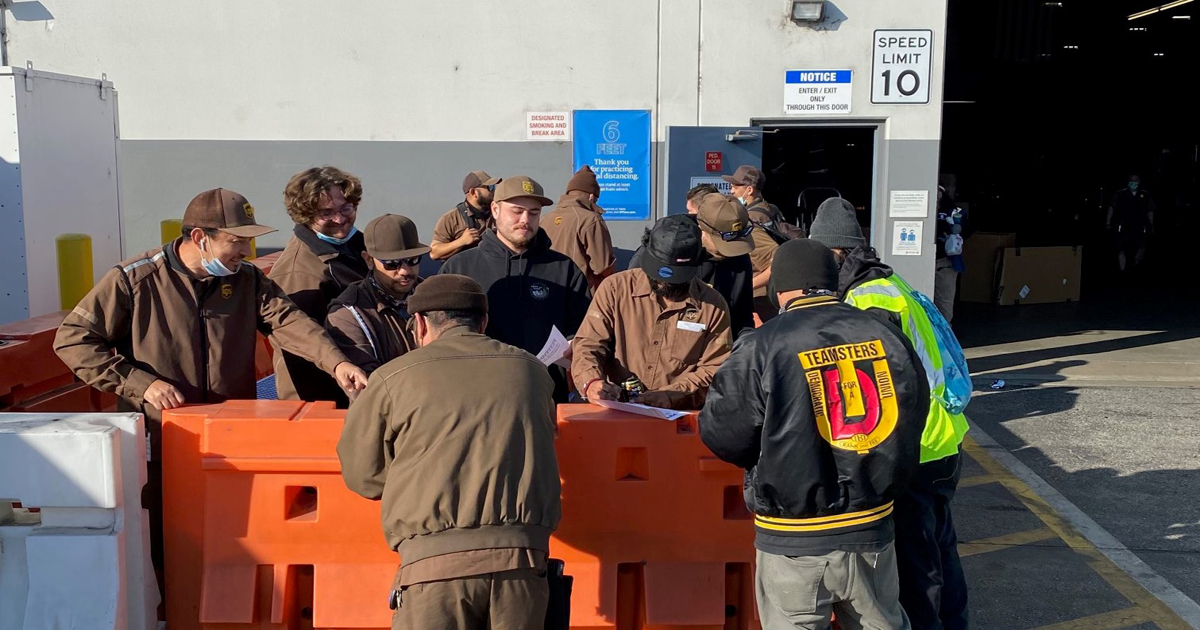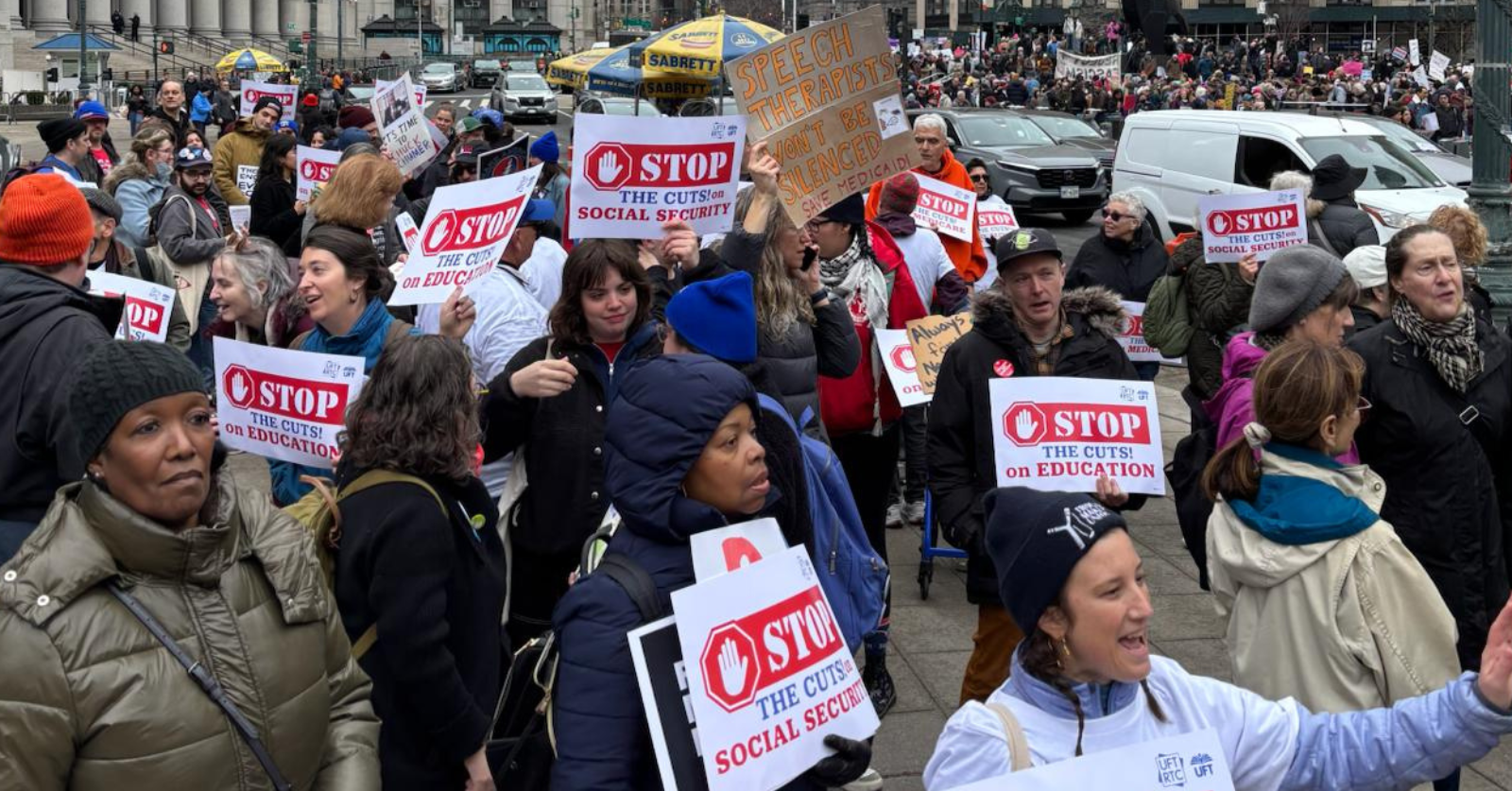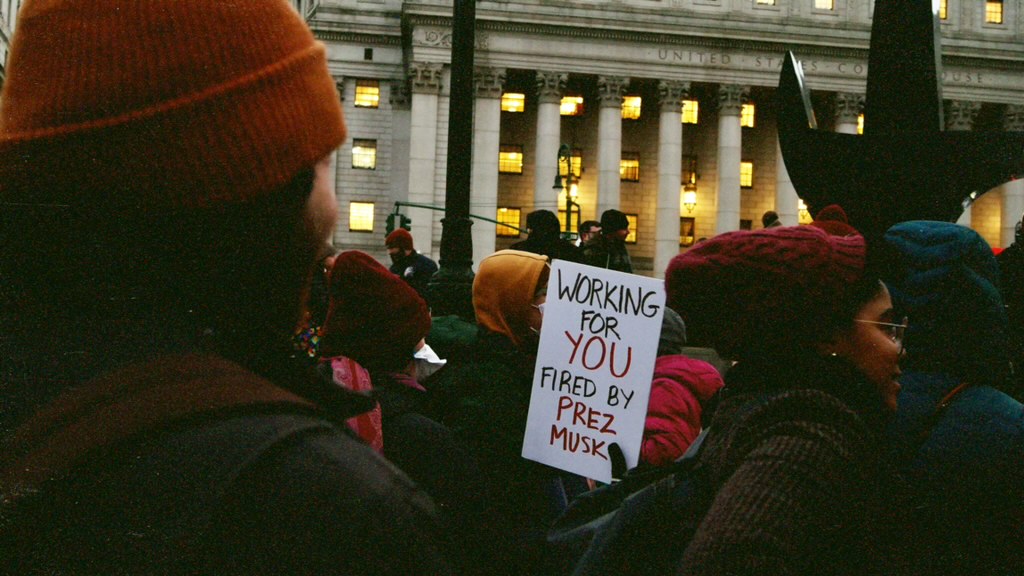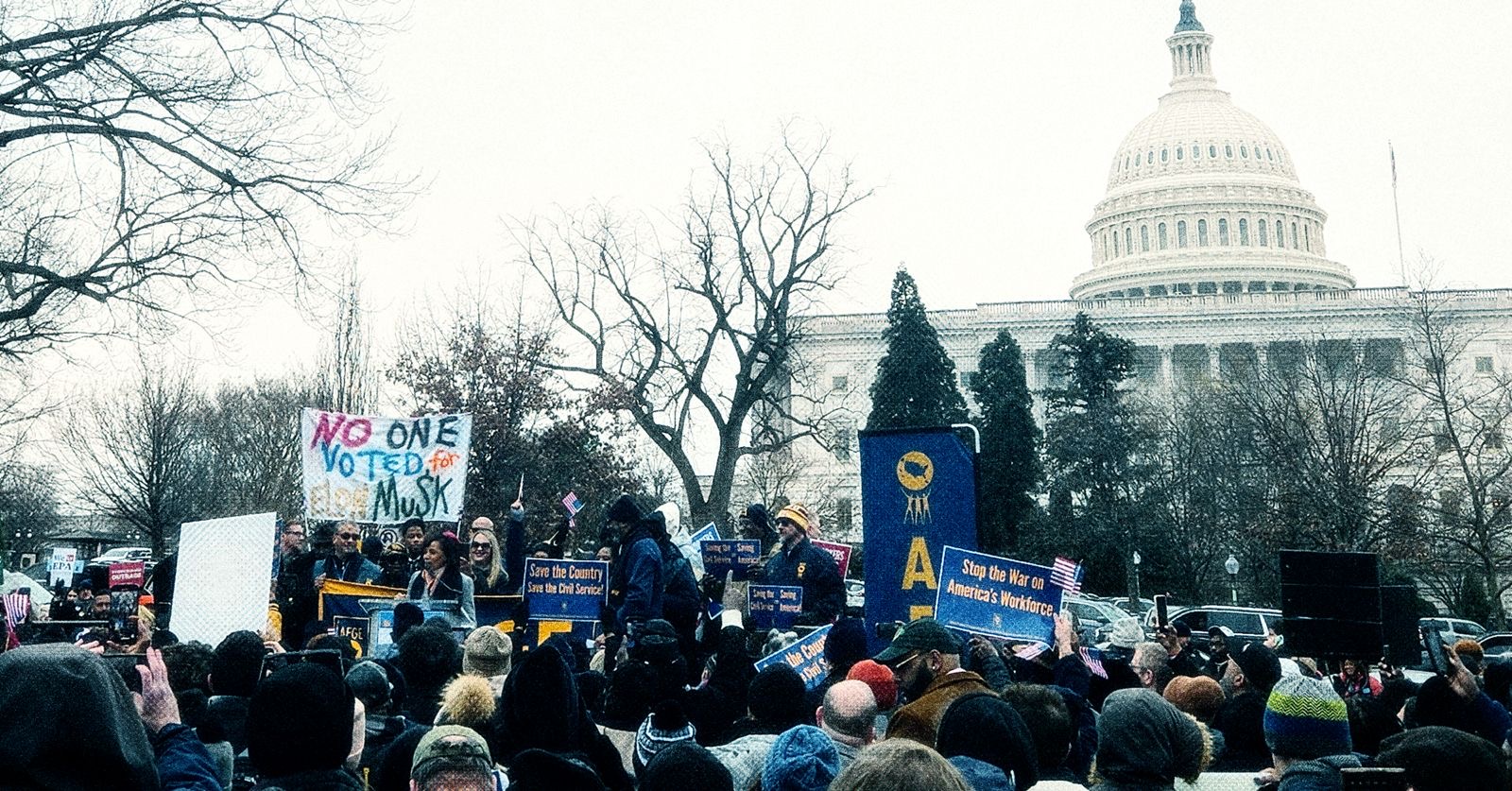Decades-long union democracy fights have just won big in the Teamsters and the United Auto Workers, creating big opportunities for socialists, especially those who are inside those unions.
You could look at the weak turnout in the recent Teamsters and UAW elections and take away “whoa, members are really alienated from their unions.” Only 15% of Teamsters and 14% of active UAW workers and retirees returned their mail ballots.
But we knew about that alienation. At this year’s DSA convention we acknowledged that “because of the decades of attacks from the capitalist class on unions, too many US unions today are wary of membership empowerment, workplace militancy, and political independence from the Democratic Party establishment.” We affirmed that “DSA supports the organized efforts of rank-and-file workers, inside and outside of DSA, to transform their unions into militant and democratic vehicles.”
“Transforming their unions into militant and democratic vehicles” is just what an active minority of Teamsters and UAW members were taking steps toward this year. The Teamsters United slate that beat the James Hoffa machine 2 to 1 was a coalition of the decades-old reform movement Teamsters for a Democratic Union with longstanding militant local-officer allies (like Fred Zuckerman, now to be Secretary-Treasurer) and with former Hoffa allies who had jumped ship, like President-elect Sean O’Brien of Boston. Zuckerman is president of the biggest local at UPS, at the company’s huge Louisville hub.
O’Brien and Zuckerman have pledged to take on both UPS in the union’s 2023 contract — the largest private-sector union pact in the country — and Amazon with an organizing drive. Each campaign offers enormous opportunities for socialists, most especially from inside those two behemoth companies.
Rank-and-file members formed Unite All Workers for Democracy (UAWD) in 2019 to push for one-member-one-vote for top officers. This was after earlier reformers’ efforts, including that of the New Directions Movement, had been blocked by the aptly named Administration Caucus. That caucus, which punishes any dissent and in auto reaches down to the level of the steward on the shop floor, oversaw a generation’s worth of concessions to employers and wanted to continue the easily controlled practice of electing leaders at conventions.
The UAWD effort was somewhat sidelined by the pandemic but got a big boost when UAW (and Administration Caucus) leaders’ own egregious corruption led the Justice Department to put the union under a monitorship. The federal monitor, taking a page from earlier Justice Department actions toward the Teamsters in the 1980s, said members should decide whether a new election system would help them stop future corruption. When the votes were counted this week, they said yes, by 63.6%.
(It’s unclear who are the more than a third of UAW voters who don’t trust themselves with a voice. Retirees wined and dined at monthly lunches? Retirees were 60% of the million eligible voters. Rank-and-filers who listened to the Administration Caucus’s dire warnings about “dark money” influencing elections? As if “dark promises of a cushy staff job” had not bought generations of convention delegates’ votes.)
Though the walkouts of Striketober were exciting, especially those taking on two-tier wages and stretched-out work hours, overall the labor movement is rickety and on the defensive.
That’s why DSA has taken on a double challenge in our labor work. We wish we could just jump into a roiling cauldron of class struggle, but it’s not there yet. We need to help foment that class struggle, from the inside, obviously, not from the digital sidelines, and we need to recruit leaders of that struggle to socialism. To quote Kim Moody on the rank-and-file strategy once again, we need to help create a “sea of class struggle for socialists to swim in.”
As they fight, lose, and win their battles with employers and inside their own unions, workers learn to organize and to lead. It’s in struggles like these, and especially when workers are brought together classwide, that socialist ideas can start to make sense.
These victories show how union democracy campaigns are not just fights for abstract rule changes but are intimately connected to leading in a new direction. Teamsters United pledged to organize the unorganized and to end the solidarity-sapping two-tier system for UPS drivers. Besides its accountability demands, UAWD made its campaign about ending two-tier contracts: “No more divide and conquer in our union. UAWD will fight to make everyone tier one.” These reformers know that they can build a union strong enough to beat the boss when the rank and file feels it runs the union.
This fall’s victories are just a step toward building the sorts of unions workers need. UAWD’s first task toward electing good top leaders is to run candidates in local convention delegate races, but the group will need to address shop floor issues as well. Some UPS locals have already begun worker-to-worker Amazon organizing; with new blood at the top, the potential exists for similar programs in other cities, as O’Brien has pledged to continue his coalition with TDU.
We know that without an incredibly strong movement of workers as workers, confronting employers, there’s no way we’ll get to socialism. DSA includes experienced worker-leaders and folks new to the union game. The latter should, of course, be humble about all we have to learn — at the same time that we’re proud of the rudder that socialism gives us. We are lucky that in two of the most important unions, movements already exist for us to support and to join.




